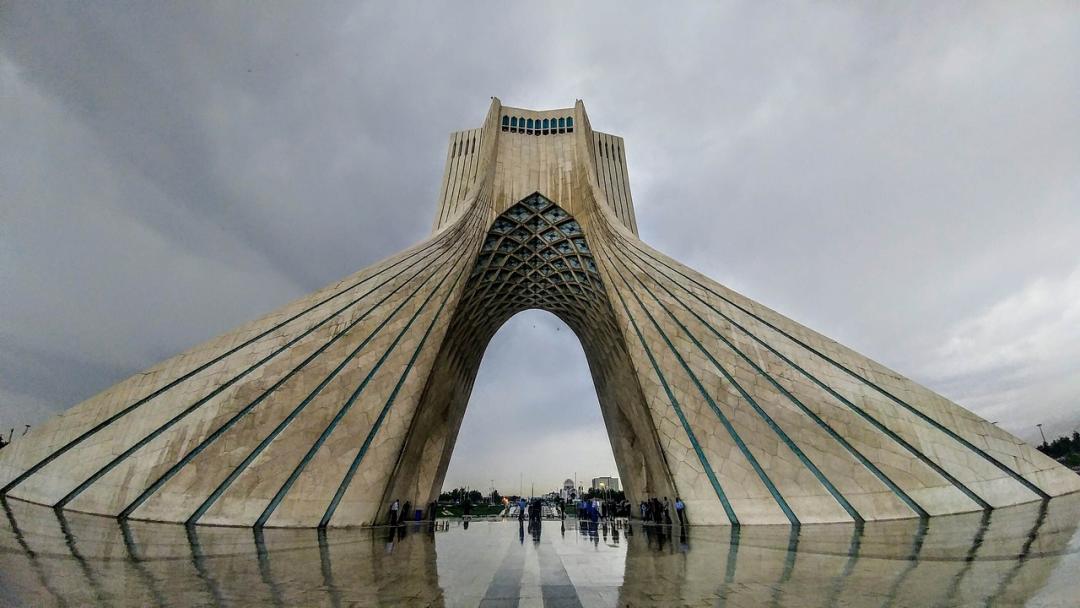
South Caucasus Peace Talks Take Center Stage at Regional Meeting in Tehran

On October 23, a meeting of foreign ministers of Azerbaijan, Turkey, Russia, Iran, and Armenia was held in Tehran.
The meeting held under the theme "Time of Peace, cooperation, and Progress in the South Caucasus" was dedicated to the events taking place in the Caucasus region, including the peace talks between Azerbaijan and Armenia. The main goal of forming this format is to unite the efforts of the region's countries to solve intra-regional problems and expand cooperation.
The Ministry of Foreign Affairs of Azerbaijan reported that Jeyhun Bayramov, the Minister of Foreign Affairs, said in his speech at the meeting that the 3+3 format was created to consider ways to solve regional problems by the countries of the region. The minister said that the platform has significant potential to complement existing bilateral and other formats of cooperation, strengthen regional security and stability, and reveal untapped potential for economic growth and progress.
In his speech, the minister clearly stated that the Baku-Tbilisi-Kars railway project with the participation of Azerbaijan, Georgia, and Turkey, the North-South corridor with the participation of Russia, Azerbaijan, and Iran, and the Azerbaijan-Iran-Turkey tripartite format are not only for the benefit of one state but for the common benefit of everyone. It demonstrated that the positive impact of these projects and formats is not limited to the region's countries and includes partnerships on a broader geography. Minister Bayramov said that the recent developments in the direction of establishing transport links between the Eastern Zangezur economic region of Azerbaijan and the Nakhchivan Autonomous Republic through the territory of Iran are of particular importance, that the soon completion of infrastructure projects and the commissioning of this route will serve mutually beneficial cooperation between these two countries in the region, as well as transport in Eurasia. He stressed that he would create a new connection artery to increase the transit potential.
"The end of the occupation of Azerbaijani territories and the full restoration of our sovereignty opens a new perspective for the normalization of relations between Azerbaijan and Armenia. The normalization of relations between Azerbaijan and Armenia based on mutual recognition and respect for each other's sovereignty, territorial integrity, and inviolability of borders will not only benefit these countries but also cooperation, and it will make it possible to take advantage of the unused potential for progress," he noted.
Russian Foreign Minister Sergey Lavrov said that the conflict between Azerbaijan and Armenia has largely been resolved, and now the parties should take further practical steps for the full normalization of relations. The minister stressed that a peace agreement should be concluded without any obstacles, borders should be delimited, and transport connections should be established.
Lavrov said that Moscow is ready to help start the border delimitation process between Azerbaijan and Armenia: "All experts know well that everything necessary for discussion and agreement on delimitation, first of all, the maps from the Soviet era are in Russia. Partners understand this. We are not trying to create a bigger problem than this."
Iranian Foreign Minister Hossein Amir-Abdollahian said that the end of the conflict in the South Caucasus has given the region's countries a historic opportunity to work towards promoting peace and cooperation. "We believe that today is a historic opportunity for all our countries. The war in the South Caucasus is over, and the time has come for peace, cooperation, and development in the Caucasus," Amir-Abdollahian added. The minister believes that one of the central tasks of the regional meeting in the 3+3 format is to solve regional problems with the direct participation of the region's countries, without the intervention of non-regional players.
During the meeting, Foreign Minister of Armenia Ararat Mirzoyan noted that there are complicated problems and history, but these issues need to be addressed; otherwise, the region is doomed to remain in the past. Minister Mirzoyan added that the settlement of current issues may ensure a cooperative environment in the region as an important guarantee for development.
Emphasizing that it will not be possible to implement future plans if all do not respect the red lines of regional coexistence defined by international law, Minister Mirzoyan indicated that the goals and principles of the United Nations Charter and, in particular, the exclusion of the use of force and the threat of force, the principles of territorial integrity, sovereignty, inviolability of borders and the protection of fundamental human rights should be the guidelines. "Moreover, it is important to adhere to these principles in our actions and rhetoric. In conditions of aggressive and threatening rhetoric, it is difficult to imagine creating a favorable environment that will allow the implementation of ambitious regional projects. For its part, Armenia is loyal to those principles," he added.
Touching upon the unblocking of regional infrastructure, the Foreign Minister of Armenia noted: "The Republic of Armenia, being a landlocked country, is interested in the unblocking and further development of all infrastructure in the region. Based on the principles of sovereignty and jurisdiction of states, reciprocity, and equality of countries, the Republic of Armenia is ready to become part of regional infrastructure projects. We believe that the intersection of north-south and east-west transportation routes in our region, including the sovereign territory of Armenia, can become a unique 'crossroad of peace' for all of us."
See Also


Mirzoyan Meets US Deputy Assistant Secretary Joshua Huck

Azerbaijani President Holds Talks with UAE and German Business Delegations on Economic Cooperation

Grigoryan Confirms Armenia’s Readiness to Dissolve OSCE Minsk Group Upon Peace Treaty Signing

Azerbaijani Official Warns of Ecological Risks to Caspian Sea, Similar to Lake Urmia and Aral Sea

